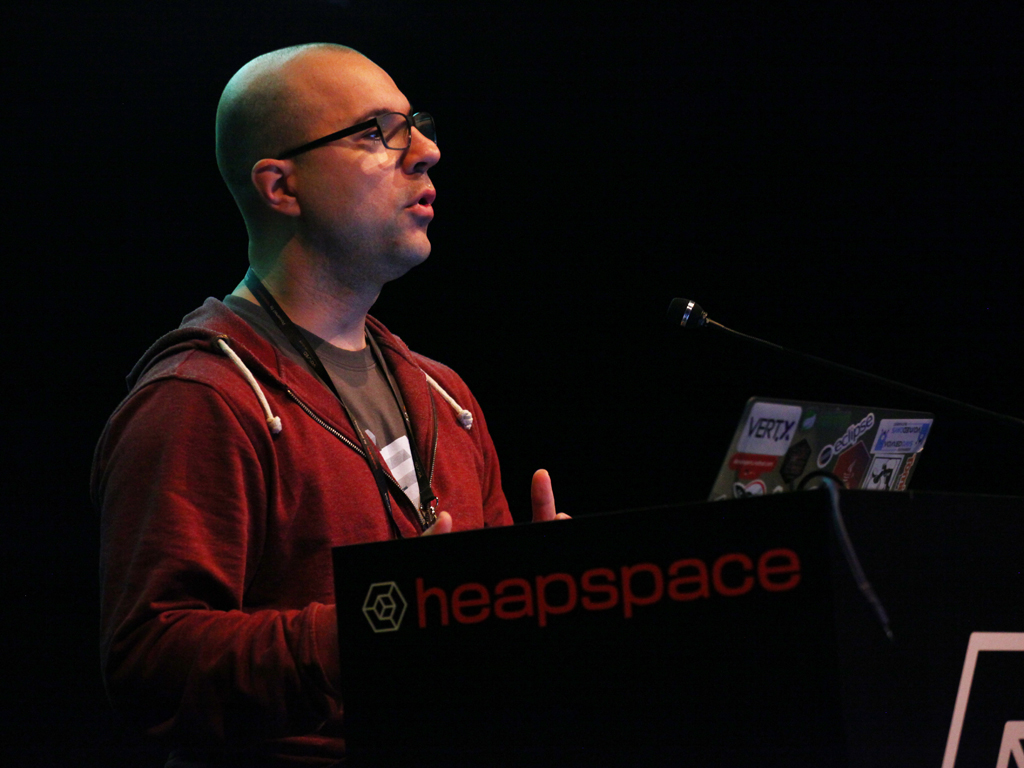Vladimir Dejanovic, founder and leader of AmsterdamJUG – IT is like a shark and needs to be on the move all the time
Source: eKapija
 Sunday, 12.11.2017.
Sunday, 12.11.2017.
 17:27
17:27
 Sunday, 12.11.2017.
Sunday, 12.11.2017.
 17:27
17:27
Vladimir Dejanovic (Photo: Mitar Mitrovic/HeapSpace)

Microservice architecture is becoming increasingly more popular and more and more companies testify as to positive experiences regarding its application. Lately, it has become very popular for agile development and delivery of complex cloud applications. This is a whole new approach to designing, developing, installing and running the system compared to traditional monoliths. Giants such as Amazon and Netflix, as well as companies with huge client pools, such as SoundCloud, were among the first ones to adopt this type of architecture.
Vladimir Dejanovic is IT manager at ING, a global finance institution headquartered in Amsterdam. He has years of experience in developing high-performance software in various programming languages and technologies and has been a speaker at numerous conferences – JavaOne, Devoxx BE, Devoxx US, Devoxx PL, JavaDays Minsk, JavaDays Istanbul, Voxxed Days Bristol, Voxxed Days Bucharest...
He was born in Belgrade, is a graduate of the Faculty of Mathematics and currently lives and works in the Netherlands.
On the occasion of his arrival to the Serbian capital to attend Voxxed Days, an event organized by HeapSpace, we took an opportunity to have a short conversation with Vladimir about the microarchitecture trend, Serbia’s opportunities in the regional IT environment and the technologies and skills to be in demand in the future.
eKapija: It seems that the shift from a monolithic architecture to a microarchitecture is currently one of the strongest trends in the industry. What sorts of risks await those who go down this road?
– There are many risks and problems awaiting those looking to break their monolith and go down the path of microservices. Unfortunately, those things are rarely mentioned in articles and lectures dealing with this topic.
The biggest risk lies in approaching this using the identical kind of thinking as when dealing with monoliths. Another common mistake is the creation of a large number of microservices, as people believe that they have to be small and do only one thing. This way, a labyrinth of services exchanging an enormous amount of data is created, resulting in bad performance, low stability and incomprehensible systems, thereby defying the purpose.
(Photo: everything possible/shutterstock.com)

Quality monitoring, logging and tracking all the events are of crucial importance in microservices. Not only does this type of information help in solving problems, but they also serve to enhance the existing systems and user experience.
eKapija: What would you recommend to young IT professionals regarding the best technologies and skills that will be in demand in the future?
– This is a very difficult question to answer. A lot of pertinent quotes can be found which proveded to be total misses here.
What’s sure is that in a nearer future there will be a bigger and bigger shift to the cloud, primarily Docker, as well as an increase in mobile technologies. This has been true for several years now and is showing no signs of slowing down. The Internet of Things is on a major upswing at the moment and it is logical for it to continue rising. Big Data is another thing which has seen and is sure to continue seeing increased demand.
Artificial Intelligence is once again in the public focus, especially since Alpha Go beat Lee Sedol at Go, although it had been predicted that AI would not be able to beat a champion in the next 10 years, especially someone like Lee Sedol. Bitcoin and crypto-currencies are also being focused on increasingly more, and it remains to be seen whether this will continue or not.
The thing I always point out and something I truly believe in is that quality IT experts can always be successful, no matter the programming language or the technology. Of course, it’s not possible to be an expert at everything, but one should at least have basic knowledge of everything and be aware of what’s out there. In the fields which we find the most suitable and that we love the most, we should strive to become experts and to always keep on learning.
eKapija: Many young, educated people in Serbia who cannot find a job in their field are considering the possibility of reorienting to IT. What is your advice as to how this kind of shift is most easily made?
– This is a very difficult question for me, as I’ve always been in IT this way or another. Still, I can say with certainty that the first step will be the most difficult one.
(Photo: Petar Markovic/HeapSpace)

Thanks to the increasing popularity of Free Software and Open Source, the amount of information available online is constantly growing. There are many instruction, articles, conference lectures and similar material, available to everybody on the internet. Also, there are numerous websites providing free courses.
Python can be a good choice of the first programming language, as can be PHP, whereas Java and JavaScript can be characterized as sure ways to getting a good job. Java and JavaScript are technologies which have been on the top of the IT scene for a long time now and are sure to stay there in the upcoming years. The only problem is that I’m not sure how suitable Java and JavaScript are as the first language. Some faculties teach Java as the first language, but there are estimates according to which this is not an ideal choice, providing Python as an alternative.
eKapija: Do you believe that Serbia has a potential for becoming the regional leader in IT?
– Certainly. The quality of IT experts from Serbia, both in the country and abroad, is very high. A large number of foreign companies have their development centers in Serbia, and the number of quality Serbian IT companies is constantly rising.
Compared to 2014, when I left for the Netherlands with my family, the current situation shows a great progress, which is a positive surprise to me. I honestly expect this trend to continue in the future.
eKapija: What is the significance of an event such as Voxxed Days Belgrade? HeapSpace has already announced Heapcon, a new tech conference, for the next year. Why are such gatherings important?
– Events such as Voxxed Days Belgrade, Heapcon and similar conferences and events make a great contribution to raising the quality of the IT scene and the visibility of the region and its IT experts in the world.
Constant progress and development is visible in all areas of our lives, but nowhere to the extent it is in IT, which is developing at a great pace, and following trends and technology development is of existential importance for both individuals and companies. It is precisely such events that enable us to keep up with the world and to gain insight into what is new and what lies ahead, what will be big in the future, and what is obsolete and should be avoided.
IT is like a shark. If you stop moving – learning in this case – you will die.
M.M.
Companies:
 ING Group Holandija
ING Group Holandija
Tags:
Vladimir Dejanovic
AmsterdamJUG
Asmterdam Java User Group
HeapSpace organization
ING Netherlands
Amsterdam
monoliths
monolithic databases
microservices
micro architecture
microarchitecture
software engineering
programming
programming languages
Voxxed Days Belgrade
Voxxeddays Belgrade
JavaOne
Devoxx BE
Devoxx US
Devoxx PL
JavaDays Minsk
JavaDays Istanbul
Voxxed Days Bristol
Voxxed Days Bucharest
cloud
Docker
Internet of Things
IoT
Big Data
artificial intelligence
Go game
bitcoin
crypto valute
crypto currency
Python
Java
JavaScript
Comments
Your comment
Most Important News
Full information is available only to commercial users-subscribers and it is necessary to log in.
Follow the news, tenders, grants, legal regulations and reports on our portal.
Registracija na eKapiji vam omogućava pristup potpunim informacijama i dnevnom biltenu
Naš dnevni ekonomski bilten će stizati na vašu mejl adresu krajem svakog radnog dana. Bilteni su personalizovani prema interesovanjima svakog korisnika zasebno,
uz konsultacije sa našim ekspertima.


 Izdanje Srbija
Izdanje Srbija Serbische Ausgabe
Serbische Ausgabe Izdanje BiH
Izdanje BiH Izdanje Crna Gora
Izdanje Crna Gora


 News
News






